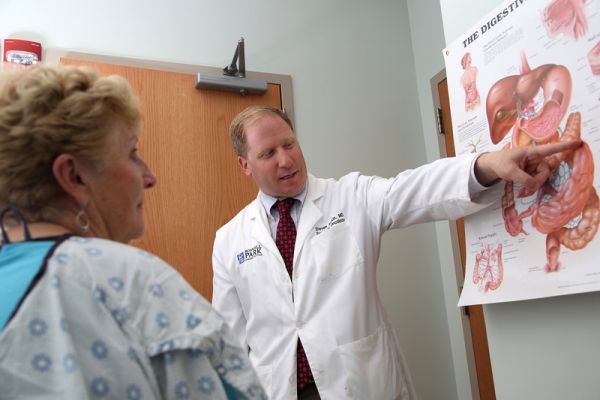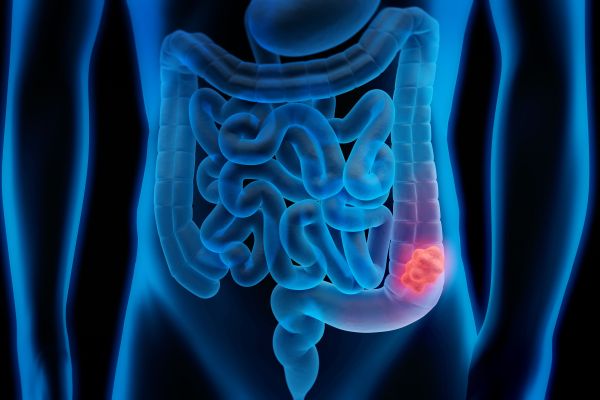Did you know that colorectal cancer is the fourth most common cancer in both men and women in the United States? While some risk factors, including a genetic predisposition for disease, cannot be controlled, research has shown certain lifestyle factors, like a healthy diet, exercise and maintaining a healthy body weight, could prevent 47% (nearly half) of the cases of colorectal cancers diagnosed in the United States every year. Based on extensive research, the American Institute for Cancer Research (AICR) suggests that following these recommendations can reduce your risk of colorectal cancer.
1. Be lean.
The leaner, the better, without being underweight. Researchers have found evidence that excess fat, especially around the waistline, increases your risk for colon cancer, as well as for heart disease and diabetes.
2. Eat well.
The AICR recommends filling at least 2/3 of your plate with non-starchy vegetables, fruits, whole grains and beans. These foods are packed with cancer-fighting properties, water and fiber, which keep you fuller longer.
3. Limit red meat and avoid processed meats.
A diet high in red meat (beef, lamb and pork) or processed meats (any meat that is preserved by salting, curing or smoking, including hot dogs, sausage or bacon) has been shown to increase the risk for developing colon cancer. The AICR recommends limiting the intake of red meat to no more than 18 ounces (cooked weight) per week – and avoiding processed meat completely.
- Deck of cards = 3 ounces of meat
- A matchbox = 1 ounces of meat
Never miss another Cancer Talk blog!
Sign up to receive our monthly Cancer Talk e-newsletter.
Sign up!4. Move more.
Exercising for 30 minutes a day, in any way, for five days each week helps you maintain a healthy body weight, plus scientific evidence shows that regular physical activity reduces colorectal cancer risk.
5. Limit alcohol.
Evidence also shows that alcohol consumption is a cause of colorectal cancer in men and a probable cause in women. If you choose to drink, the AICR recommends limiting alcoholic drinks to no more than two drinks per day for men and one drink per day for women. One drink is equivalent to one of the following:
- 12 ounces of beer
- 5 ounces of wine
- 1.5 ounces of liquor
6. Get recommended colorectal cancer screenings.
Fill out this Cancer Risk Assessment Form to learn which cancers you should be screened for. Colorectal cancer screening typically begins at age 50 for those at regular risk for the disease. However, it's important to learn your family history and determine if your relatives have had colorectal cancer or polyps (growths in the colon or rectum that can be precursors to the disease). This information can help you better understand your genetic risks and prevention options.



